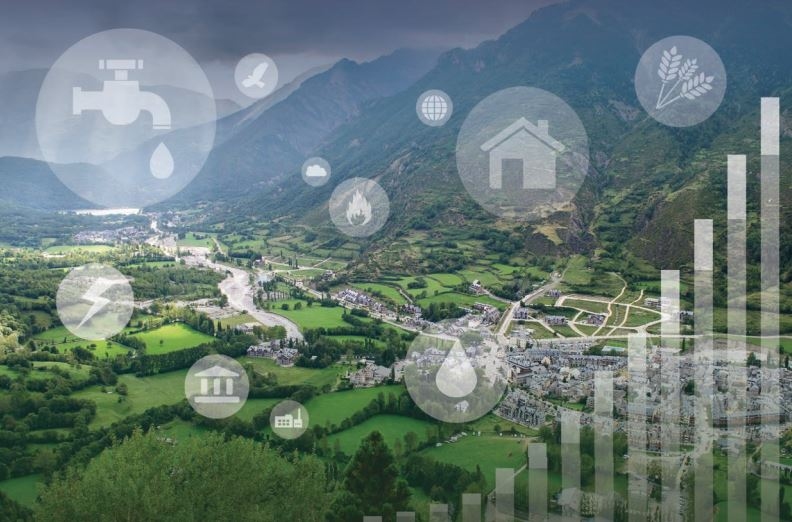Security in energy, food, and water is inseparably connected with human, economic and environmental sustainability, and this link is strengthening under increasing natural resource scarcity and climate change. This suggests that policy making and decision making for sustainability could benefit from a comprehensive nexus approach that would reduce costs and increase benefits for humans and nature without compromising the resource basis on which we rely.
The past research often neglected the relation between water and food or water and energy and there has been a structural reluctance to bring forward a broader systematic perspective to study the dependencies between the sectors. At the same time, the costs of this negligence have gone up for the players in this interconnection, whereby the latter are public, private and civil society.
In order to enhance the water-energy-food nexus, authorities need to come up with responsible governance of natural resources as the first step for action. Policies and governance mechanisms need to be developed and introduced at different levels to implement a comprehensive and holistic approach. Doing so will help mitigate negative impact of policies on each individual sector, saving resources, minimizing trade-offs, and enhancing synergies.
Sector policies need to become more inclusive and better coordinated among each other and should both protect the environment and ensure rights and access to natural resources, in particular for the poor. Governments, the United Nations and other international organizations should make the efforts to manage resources in an adaptive way and coordinate across sectors. This includes evaluating the environmental and social impacts of policy implementation and developing as well as implementing, monitoring and updating environmental management plans that consider the inter-connections between natural resources.
It is also key to identify economic incentives to enable a nexus approach, such as price reforms to better factor in resource scarcities, and to boost efficiencies and targeted subsidies without negative side effects for other sectors and the environment. The nexus approach also calls for a wide involvement of stakeholders to work in cooperation towards sustainable development. Innovative research and technologies are very important to facilitate the implementation of this framework by governments and other stakeholders.
Responsible governance should bring together the different stakeholders around water, energy and food security strategies but these players need mechanisms that would enable them to collaboratively address trade-offs and identify win-win strategies wherever possible, as well as requirements and mechanisms for the implementation of such strategies.
The continuous development and formulation of the Sustainable Development Goals should account for and recognize the significance of a nexus approach to water, energy and food. This will help promote consistency and complementarity among the different Sustainable Development Goals. The objectives are meant to reflect nexus interactions that can be monitored at different levels to boost the benefits for both humans and nature.
‘Sustainability in the Water–Energy–Food Nexus’ – Study by Anik Bhaduri, Claudia Ringler, Ines Dombrowski, Rabi Mohtar & Waltina Scheumann – Water International Journal.
(The Study can be downloaded here)




